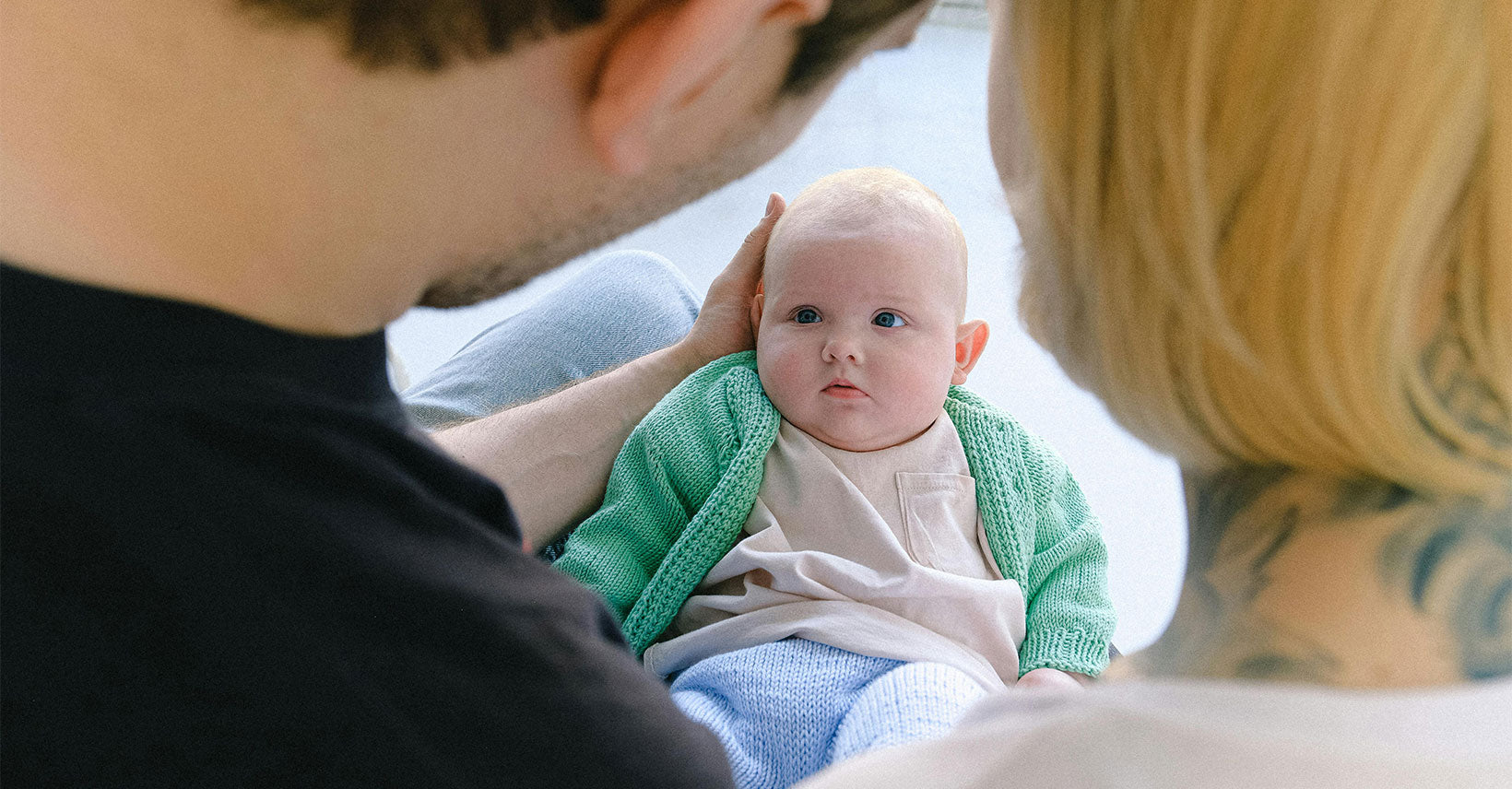


First-time parents can feel overwhelmed with so much to learn and adapt to. From late-night feedings to understanding their baby's cries, the first few months are often a whirlwind of emotions and experiences.
While everyone's parenting journey is unique, some universal tips can make things a little easier and give parents more confidence. This guide shares some practical advice to help parents through the first few moments with their newborn.
New parents often feel like they need to do everything themselves, but accepting help from others can make a big difference. Whether it's someone to bring meals, fold laundry, or hold the baby while they take a break, support takes the pressure off and gives parents a chance to recharge. When caregivers are rested and supported, babies thrive.
It may sound cliché, but resting while a baby sleeps helps parents recover from interrupted nights. Lack of sleep can affect mood and decision-making. Even short naps can restore energy and help parents cope with the challenges of caring for a newborn.
Feeding is a major need for infants in their first months, whether breastfeeding, formula feeding, or mixed feeding. If feeding feels difficult, parents should seek support. A lactation consultant or pediatrician can provide guidance, and finding the right feeding style for your family is key to making sure your baby gets enough nutrition.
There's a lot of pressure to do everything perfectly, but focusing on the things that matter most - feeding, sleep, and bonding - will keep things manageable. A wide variety of gadgets or cumbersome schedules aren't always necessary, and simplifying priorities can help reduce stress.
While it's unrealistic to expect newborns to have a strict schedule, establishing small routines, such as a consistent bedtime ritual, can help babies feel secure and lay the foundation for good habits as they grow.
Swaddling can help your baby feel secure and sleep better because it mimics the comfort of the womb. Learning the right technique ensures that swaddling is secure, leaving enough room for hip movement but tight enough to prevent the startle reflex from waking your baby.
Parents know their babies better than anyone else. While advice is helpful, they should have the confidence to make the decision that is right for their family. Not every method will work for everyone, and it's okay to make adjustments along the way.
Following safe sleep guidelines can reduce the risk of Sudden Infant Death Syndrome (SIDS). Babies should lie on their backs on a firm mattress without blankets, pillows, or stuffed animals. These practices can give parents peace of mind while their baby rests.
Skin-to-skin contact helps babies regulate their body temperature, heart rate, and stress levels. It's also a great way to strengthen the bond between parent and baby, especially in the early years.
Every baby develops at his or her own pace. It's normal to wonder if your baby is hitting milestones “on time,” but comparing them can cause unnecessary worry. Regular pediatric checkups are a reliable way to make sure your baby's growth and development are on track.
Parents often forget about their own needs while focusing on their baby. Eating regular meals, staying hydrated, and getting as much rest as possible are important to keep your body and mind healthy.
Parenting a baby is a team effort and communication is key to sharing responsibilities. Partners should understand each other's feelings, divide the work fairly, and offer support during stressful times.
Parenthood often changes the dynamics of a couple's relationship. It is common for couples to experience changes in their relationship as they adjust to their new roles. Open communication and patience can help cope with these changes together.
Babies are susceptible to minor scrapes or illnesses. Keeping a first aid kit with essentials like a thermometer, baby acetaminophen, and saline spray ensures that parents are prepared for small emergencies without rushing out in a panic.
Parenthood is full of tiny victories, like smiling for the first time or getting through a rough day. Taking the time to celebrate these moments helps keep a positive mindset and reminds parents of the joy in parenting.
Raising a newborn presents many challenges, but it can also be a time of meaning and growth for both the baby and the parents. By focusing on simple, practical advice and trusting your instincts, new parents can navigate these first days with more confidence. No one has all the answers, and it's okay to learn as you go. The most important thing is to bring love, patience, and care. Over time, routines will settle in, challenges will become more manageable, and parents will find their rhythm on this rewarding journey.

Lily Hou
An expert in sleep sack design, is a valued contributor to Kaiya Baby's blog. With a strong background in baby sleep bags and maternal care, she is highly regarded for her professionalism. Lily prioritizes baby comfort and safety in her designs, using high-quality materials. Her insightful articles on sleep bags have been featured in reputable publications and have gained a significant readership. Trust Lily to help you create a comfortable and safe sleep environment for your baby, backed by her proven track record in the industry.
Leave a comment
This site is protected by hCaptcha and the hCaptcha Privacy Policy and Terms of Service apply.